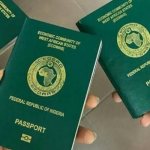Indian Prime Minister Narendra Modi has urged for the replacement of India’s religion-based laws with a uniform civil code.
Modi made this call during his Independence Day speech in New Delhi on Thursday, August 15.
“I want comprehensive discussion on the subject,” Modi said. “A secular civil code in the country is the need of the hour.”
Currently, India has separate laws for marriage, divorce, adoption, and inheritance based on religious and customary practices.
Modi believes that a uniform civil code would bring these laws under one common system, removing the existing religious distinctions.
Modi criticized the current system, calling it “communal” and “promoting discrimination.” He explained, “A large section of the country believes, which is true also, that the civil code is actually in a way a communal civil code. It discriminates (among people).” He added, “Laws which divide the country on communal lines and become a reason for inequality have no place in a modern society.”
According to Modi, a uniform civil code would end religion-based discrimination and bridge the gap felt by ordinary citizens. “I would say, it is the need of the hour that India should have a secular civil code. We have lived 75 years with a communal civil code. Now, we have to move towards a secular civil code. Only then would religion-based discrimination end. It would also end the disconnect the common people feel,” he said.
Modi also referred to Article 44 of the Indian Constitution, which states that the government should secure a Uniform Civil Code for all citizens. He stressed, “It is our responsibility to fulfil the dream of the makers of our Constitution. I believe there should be a serious discussion on the subject.”
The proposal for a uniform civil code has been part of the Bharatiya Janata Party’s election manifestos for years. The BJP sees the current system as allowing non-Hindu communities, especially Muslims, to follow their own religious practices.
However, Modi did not announce any specific actions his government will take on this issue. After losing its parliamentary majority in June, the BJP is now relying on support from regional allies, which will be crucial if the government moves forward with this controversial measure.
India’s current personal laws vary by religion. Hindu Law applies to Hindus, Buddhists, Jains, and Sikhs. Muslim Personal Law is based on the Quran and governs the Muslim community. Christian Personal Law applies to Christians.











